Description
The Noise of Time is the work of English author Julien Barnes. This book has been translated by Peyman Khaksar and published by Cheshmeh Publishing.
Book Summary The Noise of Time
In The Rumble of Time, Barnes portrays the life of the famous Russian composer Dmitry Shostakovich and one of the most famous composers of the twentieth century. In fact, this story should be considered a different look at the former Soviet Union during Stalin’s rule and World War II. In the tumultuous story of the time, Barnes portrays Shastakovich’s battle with his conscience in a fascinating way. In the introduction to his book, he emphasizes that in Stalinist Russia it was difficult to find the truth, let alone preserve it; Therefore, due to the security climate in this country, it was very difficult to find accurate and reliable information about the life of this musical genius.
About Julien Barnes
Julien Barnes was born in 1946 in England. After graduating from Magdalen College in Oxford for three years, he was the lexicographer of the Oxford English Dictionary and later wrote reviews for The New Statsman and The Observer. Barnes has been nominated for the Booker Prize four times for his books Parrot Flaubert (1984), England, England (1998), Arthur and George (2005) and Understanding an End (2011). It is worth mentioning that the book “Understanding an End” finally won him the Bucord Prize. The spice of philosophy should be considered one of the charms of Barnes’s stories; In fact, he tries to involve the reader in the story.
To whom do we suggest reading the tumult of time?
The Rumble of Time is a fascinating story that accompanies the reader and has an extraordinary appeal to him. We recommend reading this book to all readers.
Sentences from the book The Rumble of Time
Appreciation; It was just a slang word for something you could not do. When life told you “and so on” you shook your head and called it destiny. And so it was his destiny to be called Dmitry Dmitrievich. There was nothing he could do. Naturally, he does not remember his baptism, but he had no reason to doubt the authenticity of the story.
The whole family gathered around a mobile bathtub full of water in the Holy Father’s study. The priest came and asked his parents what name they had given to their enlightenment. They said Yaroslav. Yaroslav? The priest did not like it. Yaroslav said it was not a common name at all.
He said that children with unusual names are harassed and ridiculed at school: “No, no, you should not name the child Yaroslav.” His parents resented this outspoken opposition but refused to bring him to the priest. They asked what name do you suggest? The priest said give it a common name, Dmitry, for example. His father said that his name was Dmitry and that Yaroslav Dmitrievich was much happier than Dmitry Dmitrievich. But the priest did not agree, and so he became Dmitry Dmitrievich.
About the book The Rumble of Time
The fuss of time about Dmitry Dmitriev Shostakovich is one of the most famous composers of the twentieth century. Shostakovich had a tumultuous life because of the period in which he lived. He saw the revolution, the Stalin era and World War II, and finally the Khrushchev era. “Engineers of the human soul.” There were two fundamental problems. First of all, many people did not want their souls to be engineered, so do not let your hands hurt.
They wanted their souls to remain intact as they were born, and they resisted when you tried to guide them. Come to this free outdoor concert buddy. We really think you should participate. Yes, of course it is optional, but it might be a big mistake if you do not attend … The second problem was the more fundamental engineering of the human soul. Who engineers engineers?
The Noise of Time, titled The Noise of Time, is a brilliant work by Julien Barnes, which deals with the difficult and tumultuous life of one of Russia’s greatest composers, Dmitry Shastakovich. In this novel, Julien Barnes deals with the position of the artist in the age of terror and tyranny, and presents a picture of the Soviet Union in the Stalin era and the leaders after him.
Julien Barnes was born in 1946 in Leicester to French parents. He received a bachelor’s degree in modern languages from the University of Oxford and worked for a time as a lexicographer and the Oxford Dictionary Institute. (The impact of this can also be seen in his books.) Barnes went on to become a journalist, and for many years was the literary editor and reviewer of various publications. In the most tragic incident of his life, he lost his wife to a brain tumor.
In the text at the back of the book, we see a corner of the main character’s distraught thoughts, wondering where his misfortunes began:
He said to himself, “Everything started exactly on the morning of January 28, 1936, at the Arkhangelsk railway station.” His mind answered no, not everything starts like this at a certain time and place. It all starts with different places and different times, sometimes before you were born and sometimes even in foreign countries and sometimes in other people’s minds.
The Noise of Time
Dmitry Shastakovich was born in St. Petersburg in 1906 and is considered one of the greatest composers of the twentieth century, both during his lifetime and later. I suggest that you listen to the symphonies of this great composer before reading the book (or after reading the book) by searching the internet.
Shastakovich was one of the few Soviet artists whose work was criticized by Stalin himself. His music was officially banned twice in 1936 and 1948, but his musical genius will go down in history forever. Julien Barnes in her book The Rumble of Time was able to beautifully narrate parts of the artist’s life.
The book is written in three parts and the title of the first part is called “Dar Pagard”. Shastakovich is sitting on the steps in front of the elevator, thinking to himself that his life is probably over and he will have no escape. He bowed to fate and accepted that life would tell him that this was his situation. He waited for the elevator door to open at any moment and for the officers to arrest him. Sitting in front of the elevator had the advantage that his loved ones – his wife and daughter – did not witness the scene of his arrest.
He repeated the same ritual every night: he emptied his bowels, kissed the sleeping girl and his sleepless wife, took the small suitcase from Nita, and closed the front door behind her, as if she were going out to work. Then he stood and waited. (The Rumble of Time by Julien Barnes – Page 62)
Shastakovich’s misfortunes began when his opera became very popular. Both inside and outside the Soviet Union. Everyone praised the “Macbeth Lady of Macbeth” opera, which was performed and even welcomed in the United States. It got to the point where Stalin himself decided to appear on the show.
Thus, the composer was asked to attend the performance on January 26, 1936. Comrade Stalin was supposed to come; As well as other comrades, Molotov, Mikoyan, Zhdanov. (The Rumble of Time by Julien Barnes – Page 32)
It was a few days after the performance that استastakovi با opened the Pravda newspaper with frozen fingers and saw a critique of his work. The critique was titled: Boiling soup instead of music. Probably Stalin himself wrote this critique or dictated it to someone else. After reading this article, he spent the night in front of the elevator, reviewing his life. But no one comes to him and…
Shastakovich, like his sisters, first sat at the piano at the age of nine. Music was a refuge for him, which he easily understood and calmed down. But this shelter was attacked and destroyed very quickly because “power” needed music to be “in service” and the shelter of the people. Stalin, who loved Beethoven, wanted to create a red Beethoven, and who better than Shastakovich!
About Julien Barnes’s novel
The first chapter of the book is unique, shocking and very memorable. In the first season, the artist waits in front of the elevator to come and possibly end his life after being transferred to prison. An overview of the events and incidents that led him to the elevator is narrated in the first chapter.
For the artist in these circumstances, the hands of death could be a blessing because “it turned out that the hands of the living are scarier.” It’s more scary because they could change the meaning of the music and the meaning of the art. “The living can always be taken to lower levels, but not the dead.” So maybe it would be better if they came and ended his life. But that did not happen.
It is true that “art belongs to everyone and no one. Art belongs to all time and never. Art belongs to those who create it and to those who cherish it. Art is the whisper of history that can be heard from the hustle and bustle of time. “Art is not for art to exist, art for people to exist.” But what if the creator of art, if the artist himself joins a party that kills man and his hands are dirty? Is his art honest and does it tell the truth? What do those who do not know him closely judge him? Perhaps the suggestion of a man who had written on a placard outside the Soviet consulate, “Shastakovich! “Jump out of the window!” It was not too bad and misguided. Did other people really write on the placard “We understand!” Did they really understand the situation?
Shastakovich knew that the hardest days of his life had come. The days when he has to choose between cowardice and courage, between being a party servant or surviving. He always had an anti-aristocratic stance, both in politics and in art. But now the issue is different and it must be fully in the service of power. Although he disliked the cold, mechanical interpretation of power for artists, he acknowledged that they were the engineers of human souls. Because “If artists are not dealing with human life, then what is it?” “Unless the artist just wants to decorate the niche or the training dog of the rich and powerful.”
So Shastakovich decides to deal with the devil (power-party) like Faust. A transaction that resulted in survival but can in no way be considered survival. He was always worried about the judgments that were made about him. The thought of suicide was always on Shastakovich, but he eventually decided to sell his soul and music to the devil and stay alive, perhaps to acquit him later in history.
The book The Rumble of Time is not only the story of a great artist but also the story of art in the Stalin era. It is the story of all the great people who have been marginalized, eliminated or forced to deal with power.
Julien Barnes’s novel was a prolific book that was beautifully written, but it is better for the reader to have a good understanding of the Soviet Union and Stalin’s rule to understand it more deeply. Readers who have read books such as Faust, The Guide, and Margarita, 1984, Ma, Fahrenheit 451, The Anti-Soviet Soviet Union, Dr. Zhivago, The Story of Stalin, etc., will no doubt welcome and understand this book better.
Sentences from the text of the book The Rumble of Time
As a child, he was afraid of the dead. He was afraid to get up from their graves, to catch him, and to take his corpse with him into the cold black soil, and his eyes and mouth would be filled with dust. This fear gradually disappeared, as it turned out that the living groups were more frightening. (The Pandemonium of Time – Page 26)
Being able to be an ordinary human being and waking up every morning with a smile on your face is an enviable skill. (The Rumble of Time – Page 35)
That was the right way to make love – fearless, boundless, thoughtless tomorrow. And then, remorse. (The Pandemonium of Time – Page 47)
He did not want to put himself in the place of a dramatic character. But sometimes in the morning, when thoughts were running through his mind, he thought to himself, then history has come here. All that effort and idealism and hope and progress and science and art and awareness, all of them have come here: a man standing in front of an elevator, with a small suitcase by his feet, containing a cigarette and drawers and round teeth. He stands there waiting for them to come and take him. (The Pandemonium of Time – Page 53)
But none of this could convince Zakarfsky’s successor. Did any part of him believe in communism? If the alternative was fascism, for sure. But he did not believe in the utopia, in the perfection of the human race, in the engineering of the human soul. Five years after the beginning of Lenin’s “new economic policy,” he wrote to a friend: “Paradise on earth will be realized in another 200,000,000 years.” But now he thought that idea was too optimistic. (The Rumble of Time – Page 64)
Tyranny had spent years killing priests and closing churches. However, if the priests’ blessings made the soldiers fight harder, he was willing to bring them back to the scene for their temporary benefit. Similarly, if people needed music during the war to keep their spirits up, composers would be hired. (The Rumble of Time – Page 79)
Yes, music is immortal, but alas, composers are not immortal. They can be silenced easily, and even more easily, they can be killed. (The Pandemonium of Time – Page 118)
When he was frustrated with anything else, when he seemed to have nothing in the world that made sense, he thought: Good music always stays good, and great music is unbreakable. (The Pandemonium of Time – Page 131)
He liked to think that he was not afraid of death. It was life that frightened him, not death. He believed that people should think more about death and get used to its meaning. It is not a good way to live, let alone let the autumn fall without you realizing it. One has to get used to death and write about it. Whether with words, or like him with music. (The Rumble of Time – Page 150)
His hope was to escape the death of his music; Release it from the yoke of his life. (The Pandemonium of Time – Page 182)
1- Introducing the book The Noise of Time on YouTube
2- Introducing the book The Noise of Time in Aparat

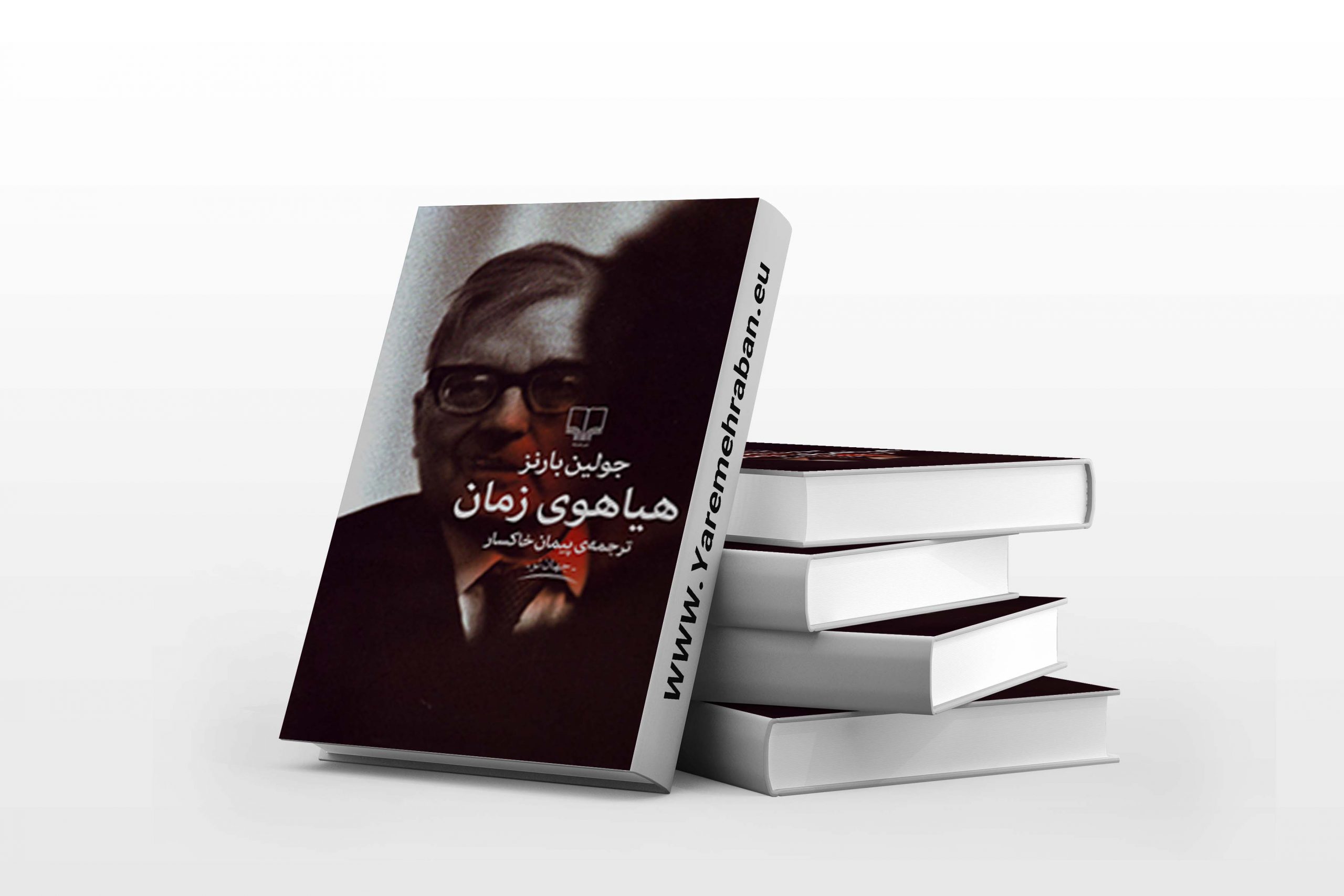


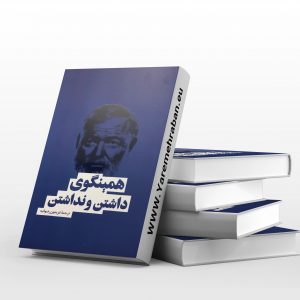




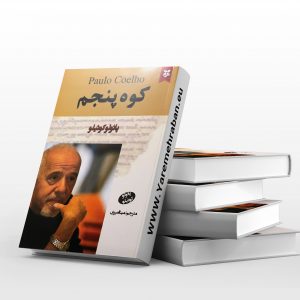

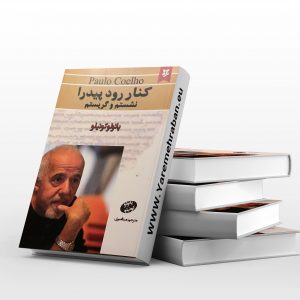

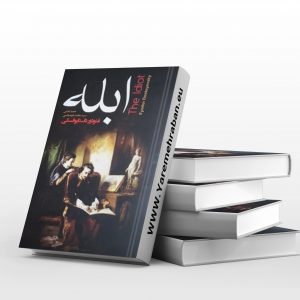
Reviews
There are no reviews yet.